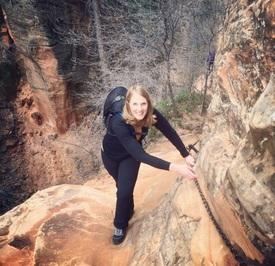confused with raw and cooked cals

Spurry05
Posts: 113 Member
I've been measuring chicken raw and counting the calories but if I measure it ones it's cooked it's calories change
Also the App isn't telling me if 100g of mince beef is cooked or raw so I don't no how to work out the caps for that
Also the App isn't telling me if 100g of mince beef is cooked or raw so I don't no how to work out the caps for that
0
Replies
-
i measure all food once it is cooked0
-
If given the chance logging raw is the most accurate. If its already cooked try to find that food cooked in the same mannor in the database. It will not be quite as accurate but better than nothing.0
-
I always use cooked cals... Had this conversation with somebody once but we couldn't work it out!0
-
Search using the term "cooked" (or how you cooked it specifically like broil, roast, etc) or raw depending on how you are measuring it.
Ideally, for the most accurate, you measure raw. The meat will lose weight as you cook it and how much you cook it can affect at. The calories stay the same (well you may lose some fat depending on how cooked but you won't be overestimating).
1/2 lb of raw beef will weigh quite a bit less after being cooked. If you use the raw weight for cooked you will be underestimating.
Meat should be weighed raw. Pasta and rice should be weighed dry.0 -
I hate this because I like to be super duper literal in my logging, and I know darn well if I cook, say, ground beef, the fat content of that meat is going to be way different once I've cooked, drained, and rinsed it (and even tho there is a listing in the food library for cooked/rinsed/drained beef, how do they come up with that in the first place? I weighed a pound of 90/10 beef before and after I cooked it, there was a 110g difference...but was that 110g of all fat? Doubtful, no?) Then I worry about not calculating my fat counts properly for the day. Argh! Best thing I ever did was ease up on being so 100% accurate. I do weigh everything, I just eased up on the knot in my brain that gets upset every time I worry about a gram or two of this and that.
That being said, I weigh meat raw, pasta/rice dry.0 -
In nutritiondata.com, it usually says if a food is raw or cooked.0
-
The reason I was wanting RAW was I'm buying chicken in 5kg works out at under £4 for 1kg as to morisons where is £6 for 1kg
Plus I'm on my own so wanted to divide the raw food in to meal sizes then freeze it so I can use it when I need to..... I made a big ragu tonight and counted it all raw then I cooked it and divided the ragu in to 4 portions and put 3 in the freezer0 -
...I had no idea that calories change after you cook something, unless you add something else to it. I can see an evening of research approaching...0
-
They shouldnt but when I've cooked a chicken breast I've weighed it raw and worked out the calories with the App then after cooking it in the oven and adding nothing I weighed it again and looked for cooked chicken breast there was quite a difference in what calories the App saidKimberly_Harper wrote: »...I had no idea that calories change after you cook something, unless you add something else to it. I can see an evening of research approaching...
0 -
markandrews760 wrote: »
They shouldnt but when I've cooked a chicken breast I've weighed it raw and worked out the calories with the App then after cooking it in the oven and adding nothing I weighed it again and looked for cooked chicken breast there was quite a difference in what calories the App saidKimberly_Harper wrote: »...I had no idea that calories change after you cook something, unless you add something else to it. I can see an evening of research approaching...
Calories can change when fat renders off and is removed - so, for instance, a grilled hamburger.
Calories in a boneless, skinless chicken breast with fat removed will not change substantially when you cook it. What DOES change is the weight, because cooking removes moisture from the chicken.
The reason your calculations gave you different calories is because: (1) you were using the same measurement standard for both (by that I mean an entry for raw chicken that you are using for both raw and cooked); (2) you under- or over-cooked your chicken; or (3) you are using the wrong cooking method for the entry (like roasted - dry heat cooking - instead of stewed - moist cooking).
If I cook 120g of raw chicken, it might weigh 100g if it's perfectly cooked. Or if I dry it out, it might weigh 85g. If I weigh the chicken and log a measurement unit meant for RAW chicken, only the first weight (120g - the raw weight) will be correct. If I weigh my 100g of chicken cooked and log the RAW weight, I will be underestimating my calorie intake.
I can choose a COOKED measurement unit for the cooked product, but even then the result is going to depend on how well (or over-well) I cook the chicken - ie, how much moisture I cook out of it.
That's why I weigh raw whenever possible.
So my tips:
1) Weigh raw when it's convenient to do so.
2) If it's not convenient to weigh raw, search the database for an entry that matches your cooking method: chicken breast only roasted, for example, or chicken breast only stewed.
3) Accept that logging, no matter how perfectly you weigh, will never be 100% accurate and simply do the best you can.
0 -
Think pasta, broccoli, etcKimberly_Harper wrote: »...I had no idea that calories change after you cook something, unless you add something else to it. I can see an evening of research approaching...
When it's boiled, way denser.
ALWAYS weigh/measure raw.
0 -
ShannonMpls wrote: »So my tips:
1) Weigh raw when it's convenient to do so.
2) If it's not convenient to weigh raw, search the database for an entry that matches your cooking method: chicken breast only roasted, for example, or chicken breast only stewed.
3) Accept that logging, no matter how perfectly you weigh, will never be 100% accurate and simply do the best you can.
Great tips. Raw is ideal, but impossible in most instances for me because I cook for more than just myself. I am not, for example, going to weigh dry pasta and cook it separately for just myself when I'm cooking for more than just me!
0 -
Dammit, I thought is said "cats"0
-
Meats cooked -- veggies raw -
 0
0 -
ShannonMpls wrote: »So my tips:
1) Weigh raw when it's convenient to do so.
2) If it's not convenient to weigh raw, search the database for an entry that matches your cooking method: chicken breast only roasted, for example, or chicken breast only stewed.
3) Accept that logging, no matter how perfectly you weigh, will never be 100% accurate and simply do the best you can.
Great tips. Raw is ideal, but impossible in most instances for me because I cook for more than just myself. I am not, for example, going to weigh dry pasta and cook it separately for just myself when I'm cooking for more than just me!
The easy way around this is to make the same portion size for everyone! A serving of pasta is about 75g, so weigh out 75g x no. of portions and work out the total calories. Cook the pasta and divide it into equal portions - the number of calories will be about the same as all pasta really does is absorb water.
If you have a different sized portion to the rest of your family, and you really want to be super pernickity, take the number of calories in the total dry weight of pasta, cook it and weigh the total amount of cooked pasta. Then divide into portions and just weigh your portion on its own. Divide the weight of your portion by the total weight of cooked pasta and x 100 to get your percentage of the total amount. Then work out what that percentage of the calories is. Easy. A bit unnecessary and faffy but it can be done, if you can be bothered!0 -
ShannonMpls wrote: »markandrews760 wrote: »
They shouldnt but when I've cooked a chicken breast I've weighed it raw and worked out the calories with the App then after cooking it in the oven and adding nothing I weighed it again and looked for cooked chicken breast there was quite a difference in what calories the App saidKimberly_Harper wrote: »...I had no idea that calories change after you cook something, unless you add something else to it. I can see an evening of research approaching...
Calories can change when fat renders off and is removed - so, for instance, a grilled hamburger.
Calories in a boneless, skinless chicken breast with fat removed will not change substantially when you cook it. What DOES change is the weight, because cooking removes moisture from the chicken.
The reason your calculations gave you different calories is because: (1) you were using the same measurement standard for both (by that I mean an entry for raw chicken that you are using for both raw and cooked); (2) you under- or over-cooked your chicken; or (3) you are using the wrong cooking method for the entry (like roasted - dry heat cooking - instead of stewed - moist cooking).
If I cook 120g of raw chicken, it might weigh 100g if it's perfectly cooked. Or if I dry it out, it might weigh 85g. If I weigh the chicken and log a measurement unit meant for RAW chicken, only the first weight (120g - the raw weight) will be correct. If I weigh my 100g of chicken cooked and log the RAW weight, I will be underestimating my calorie intake.
I can choose a COOKED measurement unit for the cooked product, but even then the result is going to depend on how well (or over-well) I cook the chicken - ie, how much moisture I cook out of it.
That's why I weigh raw whenever possible.
So my tips:
1) Weigh raw when it's convenient to do so.
2) If it's not convenient to weigh raw, search the database for an entry that matches your cooking method: chicken breast only roasted, for example, or chicken breast only stewed.
3) Accept that logging, no matter how perfectly you weigh, will never be 100% accurate and simply do the best you can.
Long Winded but thank you very much I now understand it's the lose of water when cooking
but thank you very much I now understand it's the lose of water when cooking
It's best for me I do it raw and there's only me anyway0
This discussion has been closed.
Categories
- All Categories
- 1.4M Health, Wellness and Goals
- 398.4K Introduce Yourself
- 44.7K Getting Started
- 261K Health and Weight Loss
- 176.4K Food and Nutrition
- 47.7K Recipes
- 233K Fitness and Exercise
- 462 Sleep, Mindfulness and Overall Wellness
- 6.5K Goal: Maintaining Weight
- 8.7K Goal: Gaining Weight and Body Building
- 153.5K Motivation and Support
- 8.4K Challenges
- 1.4K Debate Club
- 96.5K Chit-Chat
- 2.6K Fun and Games
- 4.7K MyFitnessPal Information
- 17 News and Announcements
- 21 MyFitnessPal Academy
- 1.5K Feature Suggestions and Ideas
- 3.2K MyFitnessPal Tech Support Questions












